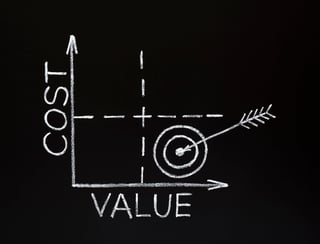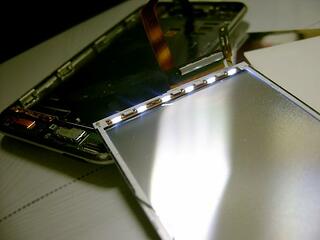At Phoenix Display International, we make custom displays for our customers. But we find that there are still a lot of misconceptions about the cost of custom designs, and what the process entails. In order to clear that up, this post will give you a look at how we go about creating a custom design and answer some of the most common questions we hear.
1. Are Custom Made LCD Displays Expensive?
Many people think that custom displays cost a lot more than traditional displays, but they actually deliver much greater value and will drive cost out of the end product. For starters, custom can be cheaper from a whole system level, and the quality is higher because the components are better integrated. Furthermore, custom displays perform better since they were designed with their singular purpose in mind from the beginning.

2. Is it Complicated to Make a Custom Display?
It’s really not. At Phoenix Display International, we make sure the process for making custom display designs is simplified. We guide each of our customers through the process, step by step, and we base these displays off of existing standard displays when possible so we’re not reinventing the wheel. But most importantly, we always start with the end product in mind and design for each specific application.
3. Are All Custom Projects the Same?
Definitely not! We can either build an entire display from scratch, in which every component is unique. Or, we can simply customize one component, like changing the length of a flex connector tail to better accommodate the final assembly. So whether you need a full custom display, a custom component or something in between - we have you covered.
4. Should We Get Thin-Film-Transistor Liquid-Crystal Display (TFT) or Organic LEDs (OLEDs) For Our Design?
We get this question all the time, and the best answer is: it depends. OLEDs are still 25-50 percent more expensive than their equivalent TFT counterpart. Sometimes the cost is worth it when the higher contrast ratios, better viewing angles and faster response times are critical to the success of the end product.
When we make a recommendation on TFT vs. OLED to our customers, we always consider the purpose of the product and what ultimately sells it. If your product is display-centric, like a cell phone or TV, your end user needs it for viewing. This means the display is the key selling point and must be ultra-high-performing. On the flip side, if your product is a medical device, for example, that measures oxygen in the blood, the display isn’t the most critical component (the systems inside are). So in that case, improved response time will not actually improve the end products performance and warrant the additional cost.
There are also factors to take into account like sunlight readability and wearables. If you need a display to be easily viewable outdoors, we can make TFT displays that are better for this than OLEDs. Or with wearables, the lack of backlight in OLED them allows for a smaller, thinner package. So in this case, we would prefer to design in OLED.

5. When Does it Make Sense to Have a Custom Display Designed?
Easy rule of thumb, if you build more than 5K per year of a given product, we can save you money by going the custom route and designing a display directly around your product. Or, in some cases if you have an outlier application, a very unique size/requirement needed or some icon-based display at any sort of volume, we can find a way to make it all more efficient.
6. How Do You Start With a Custom Design?
First, we begin by diving into your product’s purpose and how the end user will interact with you products. Second, we look into the product’s design to determine how to best integrate the LCD into your product, as well as how to integrate your product with the LCD. This approach gives us a seamless, efficient integration so there’s no waste (by waste, we’re referring to dollars spent that don’t result in value or an improved end user experience).
That’s an overview of what you can expect when it comes to custom made LCD displays. Have any more questions? Contact us anytime!






